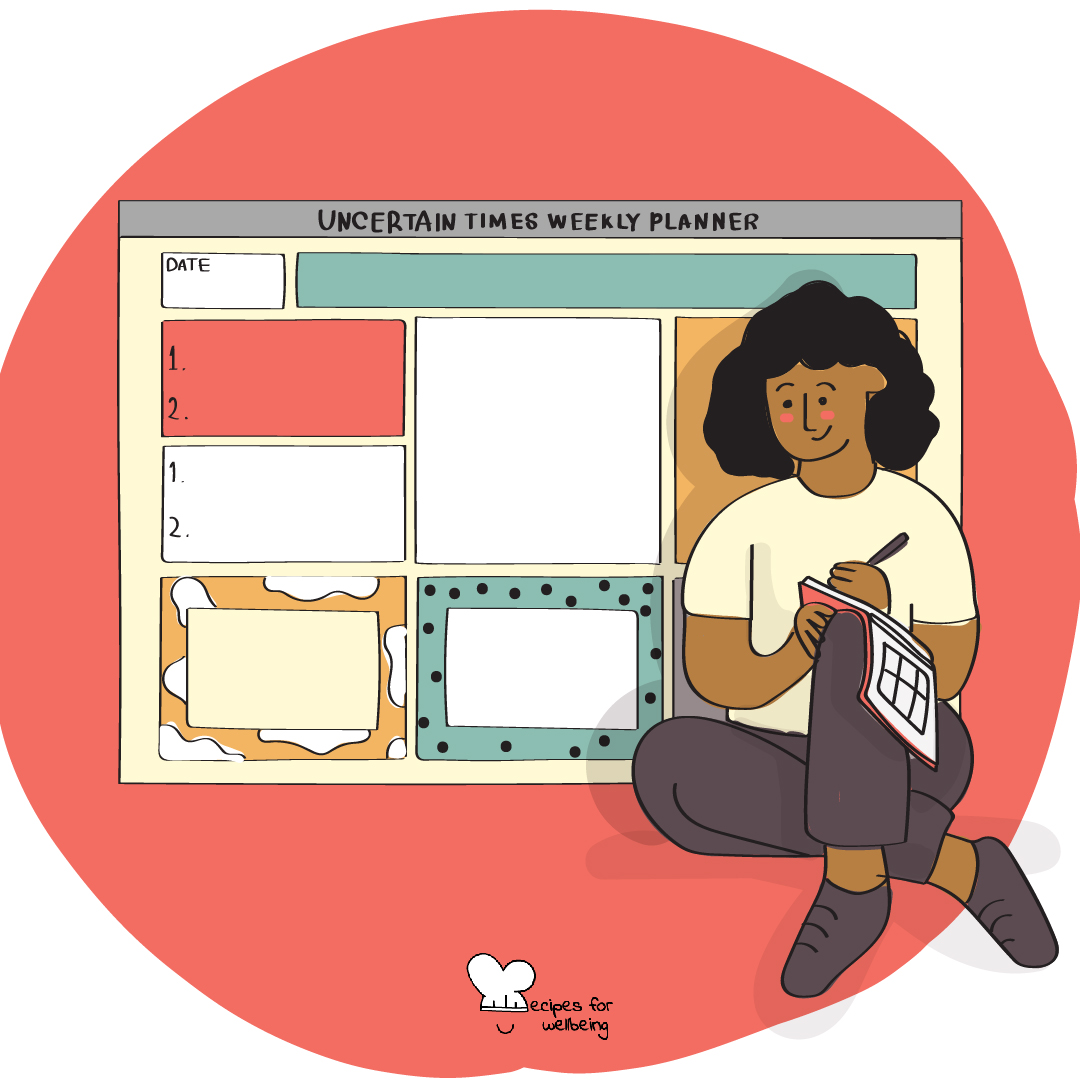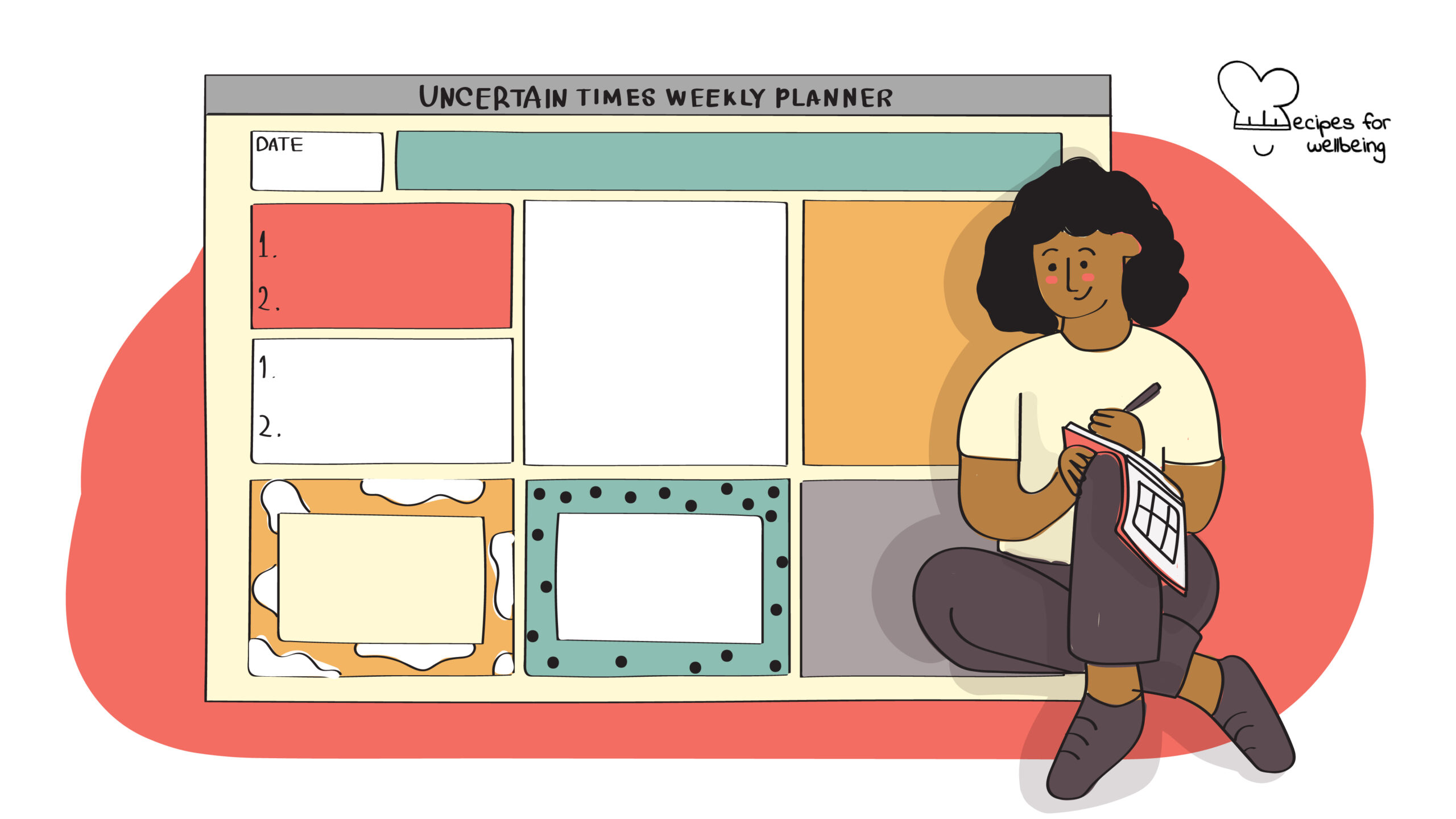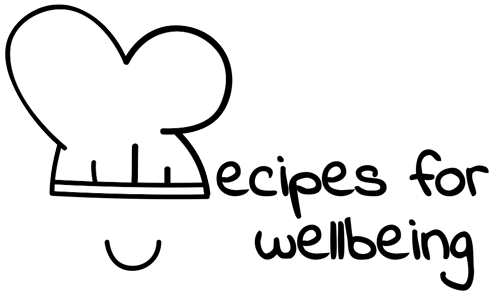
Weekly planner for uncertain times
Until you step into the unknown, you don’t know what you are made of. ―Ray T Bennet
👥 Serves: 1 person
🎚 Difficulty: Medium
⏳ Total time: Ongoing
🥣 Ingredients: A quiet place with no distractions, Uncertain Times Weekly Planner, pen
🤓 Wholebeing Domains: Accomplishments, Discomfortability
💪 Wholebeing Skills: Acceptance, Adaptability, Agility, Discernment, Flexibility, Perseverance, Planning, Resilience

Weekly planner for uncertain times
📝 Description
A planner to help navigate the complexity of uncertainty.
You know that feeling when you’re about to try something new for the very first time – but suddenly, your mind begins to wonder? It begins to fill in the blanks of the unknown, of the uncertainty that lies ahead. Fear of the unknown is a common human experience – and it can be hard to navigate.
Uncertainty is all around us – now more than ever. From a global pandemic to stress about safety, finances, health, relationships – you name it, much of life is a mystery. This fear can leave you feeling anxious, overwhelmed, stressed, and can drain you emotionally. It can significantly impact overall wellbeing. This is because humans crave stability, safety, security, and love.
Everyone handles unknowns differently – some people love changes and thrive off of risk-taking and changes. But not everyone – and that is okay too. However, you handle uncertainty, know that you are not alone in what you are facing. Now you might be wondering how it’s possible to “plan” for “uncertainty”?!
This recipe will support you in navigating the unknown and its many challenges. You will learn to validate how you are feeling, recognise how you are handling things, and find ways to improve your approach and support yourself with gentleness and compassion.
This recipe has been inspired by the Uncertain Times work created by Cassie Robinson and Ella Saltmarshe with support from The International Futures Forum. It has been adapted by our wellbeing content writer collaborator Marissa Del Mistro.
👣 Steps
Step 1 – Download the planner (2’)
Download and print the Uncertain Times Weekly Planner. If printing it out is not an option for you, you can simply download it and edit it digitally (or create your very own version by hand!).
Step 2 – Fill in your template (30’)
Take some time, either at the start of your week (or at the end if you prefer planning for the upcoming week at the end of the previous one), to work through the questions in the planner. We recommend doing this in a quiet place where you won’t be disturbed (consider silencing your notifications!). The questions include:
- What question (around uncertainty) would it help me to explore this week?
- Two things I learnt last week about uncertainty…
- This week’s exploring conversation about my question will be with…
- This week I will share with…
- Someone I think could bring an interesting perspective is…
- Draw how uncertainty feels right now.
- Which companion do you want by your side this week?
- Which saboteur might get in your way this week? The saboteur will look different for everyone and may even vary each week. It is very healthy to recognise what this looks like for you. Sometimes, we are our saboteurs when we participate in actions like procrastination. Other times it is greater experiences such as isolation, comparison, self-criticism, waiting for permission, and burnout.
Step 3 – Repeat (weekly)
Hollow out space to do this planner weekly and see how it begins to impact your experiences with inevitable uncertainty.
Step 4 – The importance of community (ongoing)
When working through your weekly planner, you will instantly see how important a healthy bond to your community is. However you define “community”, make sure to be surrounded by like-minded folk that will support you or even just pass time with you, without judgement. Consider:
- You are likely a part of a geographical community – How often do you connect with your neighbours? Can you join neighbourhood apps or a WhatsApp group? Can you initiate a block party or garden party as a chance to speak to those who live around you?
- Does your place of work offer a sense of community? Is there a way you can foster those relationships?
- What about hobbies, friendships, family, or other activities that you can be a part of or join?
To recognise who are safe people in your life, and what that means, check out our recipe “Creating a safe squad”. And if you’re intrigued to explore who are the people whose wellbeing influences and/or is influenced by yours, we recommend our recipe “Social universe”.

